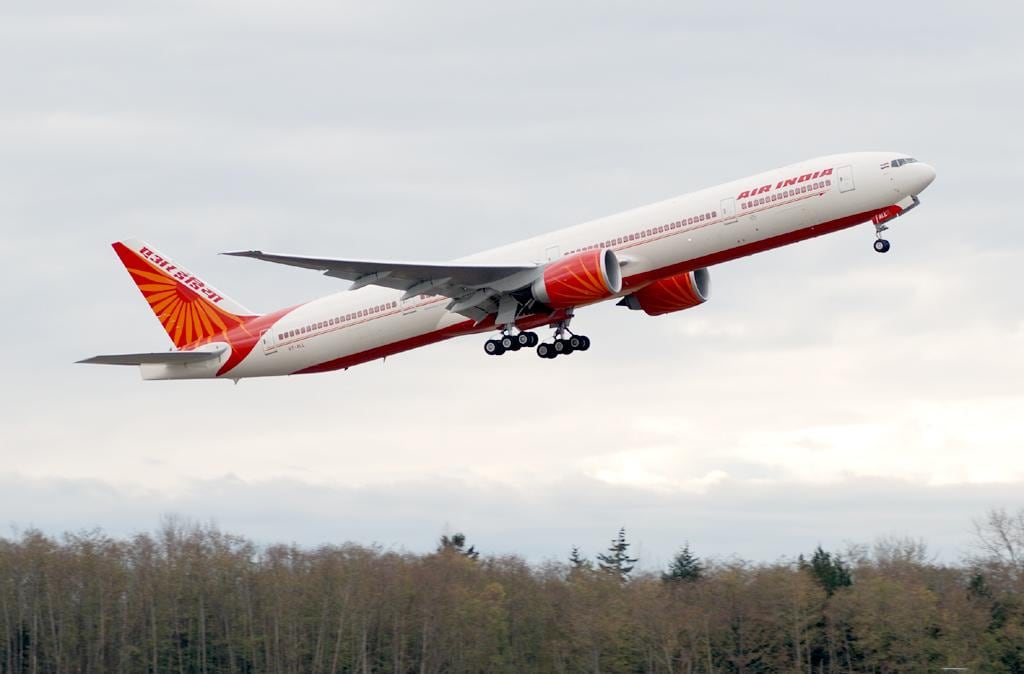Air India upgrading crew rostering, customer notification system: Wilson
Air India has been the ire of its passengers this week as more than half of its flights have been delayed, mainly due to its outdated crew rostering system. Due to the current system, the airline was unable to handle the disruption caused by Cyclone Peparjoy on India’s west coast. The sudden landing of two aircraft also added to the carrier’s problems.
To make sure things like this don’t happen again, the airline’s Chief Executive Officer (CEO) and Managing Director Campbell Wilson said on Friday that the airline is investing in an “evolving program” so that flight crew can be quickly reassigned and passengers can be rebooked immediately if anything happens. Similar glitch, and that program will be fully operational by early 2024.
Wilson told employees through a letter reviewed by Business Standard (BS).
With Cyclone Biparjoy passing into the Arabian Sea near Mumbai on June 11, operations at the city’s airport wind down. The paper spoke to three Air India executives on the matter and discovered that while other airlines were able to start operations from June 12, Air India found it difficult to do so, mainly due to issues with the crew rostering system. Male airline executive.
The airline’s daily on-time performance (OTP) was 32.3 percent, 24.5 percent, 41.7 percent, 36 percent and 65.4 percent, respectively, between June 11 and June 15, according to data from the Ministry of Civil Aviation. Meanwhile, the number of OTPs of major carriers such as IndiGo and Vistara — which also have major flights to and from Mumbai airport like Air India — reached more than 90 percent by June 15, according to the data.
About 37 percent of the total flights of the Tata Group pass through Mumbai Airport. About 44 percent of Vistara’s flights – also operated by the Tata Group – pass through Mumbai airport. For IndiGo, Mumbai’s share is about 18 percent, according to aviation analytics firm Cirium.
The Senior Executive Director said, “The cabin crew were sent from Delhi to Mumbai to normalize operations, but that then led to a certain shortage in Delhi.”
Air India did not respond to Business Standard’s inquiries on the matter.
Among the many Air India flights that were delayed in the past few days was the Mumbai-Bengaluru flight – which was delayed by 18 hours – while one flight to Doha was 20 hours behind schedule.
“Managers of Air India rushed to find replacement flight crew to operate the already delayed flights as those originally appointed had exceeded the stipulated working hours for that day. In some cases, it took a few hours for the separate crew members to be arranged and then the time limit problems for working time began. Pilots are slipping off. Some flights left on time without needing to be replaced but some were delayed,” said the airline’s second executive officer.
The passengers were agitated and Central Industrial Security Force personnel had to be called in to bring the situation under control. The third official explained, “There were many passengers who missed connecting flights due to the delay and we had to find seats for them as well on the next available flights.”
Air India, which recently launched new domestic flights from Delhi and Mumbai, has operated around 58 A320s over the past few months. Earlier this week, two A320s developed technical snags that affected schedules.
“While the weather is not within our control, and preventing disruption is clearly preferable, there are things we can do to improve our ability to handle events like this,” Wilson said in his post on Friday. “Reducing the impact on customers is the main priority.” The impact of disruption on crew members is another matter. In this regard, we are upgrading customer notification systems and processes to make them less manual and more accurate and to take advantage of new channels such as WhatsApp.”
“We are also investing in sophisticated software to rebook passengers, restore aircraft and crew rotation and positioning, so that we can return to normal operations as quickly as possible. Three critical implementations of the ‘disruption management’ system are in progress at the same time to address the issue of customer, crew and aircraft in terms of outages, They are all scheduled to become operational in early 2024.”
In a tweet on Sunday, the airline blamed adverse weather conditions and the temporary closure of runway 09/27 at Mumbai airport for the problem.
“In addition to other consequential factors beyond our control, some of our flights have been delayed and canceled,” the company said in a tweet.
